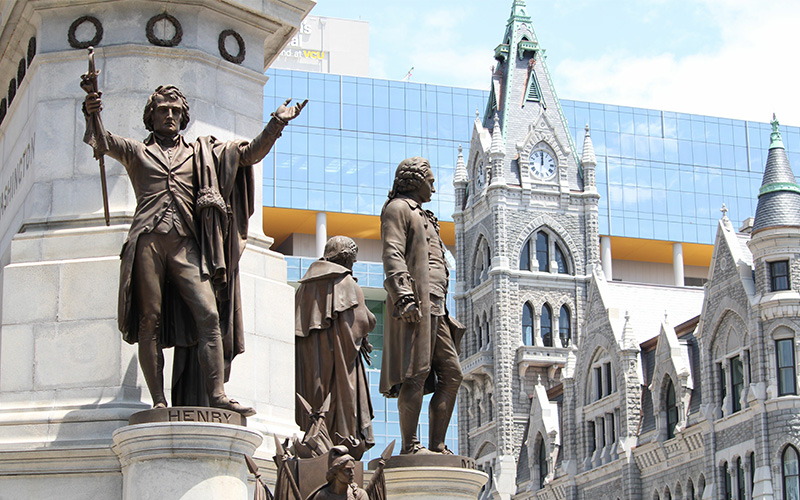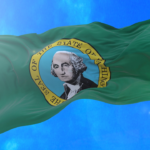UPDATE 6/26/2025: The Virginia Department of Labor and Industry announced that the final regulation will be published in the Virginia Register of Regulations on June 30, 2025, and will take effect on July 30, 2025. The final regulations did not substantively differ from the proposed rules, though several technical changes suggested by the Freedom Foundation were adopted.
This week, the Freedom Foundation submitted public comments supporting a set of administrative regulations proposed by the Virginia Department of Labor and Industry (DoLI) to protect school and municipal government employees from certain coercive union practices and to safeguard taxpayer-funded time and resources from being hijacked for union purposes.
While public employees in Virginia and elsewhere have always been able to join a union if they wish, the Commonwealth has historically prohibited formal collective bargaining between government employers and labor unions over public employees’ terms and conditions of employment.
That changed in 2020 when Democrats controlled both chambers of the legislature and Democrat Ralph Northam occupied the governor’s mansion. At the urging of government unions like the National Education Association and the Service Employees International Union, the General Assembly narrowly passed House Bill 582, allowing individual school districts, cities, counties, and other municipal government entities to authorize collective bargaining for their employees by ordinance or resolution.
Since that time, at least 17 local governments in the Commonwealth have done so in response to intense union lobbying and/or electoral pressure, according to Freedom Foundation research. Because no state parameters exist governing the process of recognizing a union and engaging in collective bargaining, each jurisdiction’s rules vary.
However, the absence of any state safeguards has allowed unions to secure many of their typical priorities — either in the authorizing ordinances and resolutions or the subsequently negotiated collective bargaining agreements — that limit public employees’ ability to freely choose whether to join a union or be represented by one and that leverage government employers’ taxpayer-funded time and resources for union membership recruitment.
While DoLI may not have the authority to solve all these problems, the Freedom Foundation-supported regulations it has proposed would address some of the most concerning practices by applying certain existing state laws governing private-sector employees and businesses to local governments and their employees.
First, the regulations would expressly extend to public employees the right to select a union pursuant to a secret-ballot election. In so doing, the proposed rules would protect public employees from being pressured or coerced into unionization via the infamous “card check” process, by which union organizers approach employees directly about publicly signing union petition cards.
In its brief comment on the proposed regulations, the Virginia Education Association (VEA) claimed that, “All collective bargaining resolutions adopted by Virginia school boards, to date, provide for free and fair secret ballot elections…” But, as the Freedom Foundation documented in its comment, this is simply incorrect:
- The resolution adopted by Richmond Public Schools specifically authorizes the recognitions of unions via the inherently coercive and undemocratic card-check procedure.
- Loudoun County’s collective bargaining ordinance describes a “secret, mail-ballot election” process but notes “[t]he election may take place by an alternate method if agreed by the parties.”
- The resolution adopted by Falls Church City Public Schools references secret-ballot elections but also states that ballots are the “property” of the union.
- Four resolutions/ordinances discuss an election or reference a secret ballot in some context, but do not specifically guarantee that employees will be permitted to vote on union representation in a secret-ballot election.
It is rather telling that the VEA did not even attempt to defend card-check on its merits and was instead reduced to arguing, falsely, that the practice simply does not exist in the Commonwealth.
Second, DoLI’s proposed rules would also require that a public employer obtain an employee’s voluntary, written authorization before deducting any union dues from the employee’s paychecks, a protection already enjoyed by the state’s private-sector workforce.
As the Freedom Foundation explained in detail in its comment, unions favor payroll deduction as a method of dues collection because it enables coercive membership solicitation practices. For instance, all 17 local government employers in Virginia that have extended collective bargaining to their employees have also agreed to collect dues from employees’ paychecks, and at least 10 of these allow deductions to commence upon the employee’s “voice authorization.”
By requiring that only written authorization is permissible, DoLI’s regulations would help ensure that public employees truly intend to sign up for union membership and dues payment and have a chance to review the terms and conditions on the membership form, which often contain limitations on the signer’s ability to cancel the payments in the future.
For its part, VEA’s only argument against this component of the proposal was the demonstrably false claim that all local government employers in Virginia that have authorized collective bargaining already “permit payroll deduction of union dues only upon written authorization from an employee.”
Lastly, the proposed rules would prohibit union membership solicitations from occurring during public employees’ working hours. According to the Freedom Foundation’s research, at least 15 of the 17 local government employers that have authorized collective bargaining so far have also agreed to provide unions with an opportunity to solicit membership from employees as part of the employer’s orientation process for new hires.
Government unions have a track record of treating employees quite poorly in such settings and, at any rate, taxpayers should not have to subsidize a private organization’s membership solicitations while public employees are on-the-clock at government facilities.
In addition to the Freedom Foundation, the proposed rules are supported by the Competitive Enterprise Institute and the Thomas Jefferson Institute for Public Policy.
While DoLI’s proposed regulations won’t solve every problem with public-sector collective bargaining in Virginia, they’re probably the best the Youngkin administration can do unilaterally and would still provide much-needed safeguards against some of government unions’ worst conduct.
DoLI should proceed to formally adopt the final rules posthaste.







